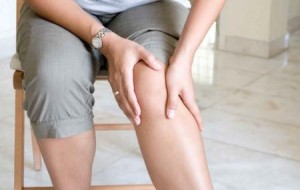Arthritis is a disease of the joints that strikes adults particularly those in their golden years. This condition, however, has been observed to strike the younger ones in recent years.
Osteoarthritis is the most common form of arthritis affecting millions of people worldwide. It affects the protective cartilage located on the ends of bones particularly in the hands, neck, lower back, knees and hips. A study done by the Centers for Disease Control and Prevention showed that in 2005, 13.9 percent of adults aged more than 25 years and 33.6 percent of people more than 65 years old suffered from osteoarthritis. While there’s no cure for this condition, there are treatments available that help slow the progression of the disease and relieve pain.
Thanks to various supplements available on the market today, people suffering from arthritis are given hope and relief of their joint pain. One of them is Finitro Forte Plus, a nutritional supplement especially developed for people with joint problems.
A representative for Finitro said “We want nothing more than for science to be able to say ‘we’ve done it, we’ve cured this problem for everyone, now and going forward,’ but the reality is that medicine is not there yet. The whole reason we exist to try and give people a means to manage their pain until a permanent solution is found.”
“In the meantime, studies like the one done by the EULAR are good, because they provide science with the steps needed to keep working for a cure, and they provide those suffering with simple, safe advice on the best way to mitigate their pain. Until we have a definite, solid answer to this ailment, the more eyes on it, and the more safe suggestions for its treatment, the better,” the Finitro representative added.
A major international study published in the Eular Congress News that covered 23 countries and more than 3,500 rheumatoid patients pointed out the need for physicians to consider the effects of obesity on rheumatoid arthritis when creating development management plans for their patients. The study found that an increase in body mass index (BMI) was closely linked to increased disease activity. For this reason, the researchers encouraged physicians to give lifestyle and weight loss advice to their obese patients particularly during the consultation stage.
Diet Linked to Osteoarthritis
A new study done at the Duke University has found no link between obesity and arthritis. The research that used mice as subjects looked into the role of the appetite hormone leptin in the development of arthritis. The findings published in the journal Arthritis and Rheumatism noted the absence of leptin did not lead to arthritis despite the weight gain in the lab mice. The scientists added that the joints of the overweight mice were even healthier than those of the control mice.
The appetite hormone leptin is known to affect certain factors linked to osteoarthritis. These are the sex hormone levels, body weight, bone metabolism and inflammation.
Obesity and Lack of Exercise
Although obesity is often blamed for the development of arthritis in adults, there’s no specific study that have proven this.
Scientists have found that this condition is largely attributed to a person’s lack of exercise more than their calorie intake. Researchers from Stanford University’s School of Medicine, in their latest study, reported a link between the increase in obesity cases and the drop in the amount of time Americans spend exercising over the past two decades.
The study that analyzed data gathered by the National Health and Nutrition Examination survey starting in 1988 until 2010 noted no increase in the calorie intake of Americans during the 22-year period. A striking finding pointed to the reduced amount of exercise Americans do in their free time. Among women, the percentage of those who reported not doing any exercise went up from 19 percent to 52 percent. Among men, the rate was also up from 11 percent to 43 percent.
In line with this, the researchers also noted a rise in obesity cases among women from 25 percent to 35 percent and from 20 percent to 35 percent among men.
Walking is the Best Exercise
People suffering from arthritis need not engage in a rigid exercise routine to keep their bones fit and healthy. Scientists recommend one effective physical activity which can greatly help and that is walking.
Did you know that taking some 6,000 steps a day can already help older adults remain active in their 50s?
A study by Boston University researchers covering adults aged 50 to 79 suggested that if only people will walk at least one hour per day at an average pace of 100 steps per minute, they can already keep osteoarthritis at bay. The findings published in the recent issue of the journal Arthritis Care & Research revealed a strong link between the participants’ walking activity and knee health.
The researchers stressed that walking provides huge benefits to people with arthritis. It is completely free and can easily be incorporated into one’s daily routine.
Originally posted on July 31, 2014 @ 5:39 pm
